The focus was on writing to persuade providing Room 3 with an opportunity to combine the writing skills they learned over the course of the term, with oral language; the latter being an aspect of the literacy curriculum that is often overlooked. Debating employs three of the four main aspects of oral language: independently listening and speaking and applying discussion skills. While true debate involves the opportunity to rebut or counter the arguments of the other team, the students focused on delivering their own arguments succinctly without worrying about creating new ones while the debate was happening.
The students were introduced to the concept of debate by watching short clips of actual debates, and with whole class and small group oral language games. ‘I disagree’ is a game where players are given a statement and each person must ‘disagree’, and then explain why; quite the challenge if you actually agree with the statement made! There was much hilarity at times as the students came up with more and more absurd reasons for disagreeing with the statement given.
‘Stand up Strong’ is a game where the classroom space is split in half. The teacher makes a statement and the students move to show that they either agree or disagree with the proposed statement. They must be prepared to justify their argument if called upon by the teacher.
During lessons, the class came up with a list of success criteria for effective debating. The students drew on their knowledge of persuasive writing to form the language side of successful debating. They specified the use of emotive language and having a clear position as important aspects of a good debate.
We watched videos of students participating in debates and the students decided to add speaking clearly and with appropriate volume, speaking at a steady pace, and varying voice inflection to the list.
The students had a few practice opportunities to get a feel for debating and speaking in front of the class before forming teams of three, being given a topic and either a proposing or opposing position. They worked together with their teams to come up with, and then write their arguments for or against their given statement. There was a lot of practicing, both individually and as a team, to try to memorise their arguments and use strategies such as making eye contact and speaking at a steady pace.
Debate day was a bit nerve wracking. The students showed courage and did their best to use their practiced ‘public speaking voices’ to persuade their audience.
It was hard to talk in front of all the people while they were all staring at you.
It was hard to argue for something you don’t believe in.
We learned new skills like speaking clearly, using persuasive language and using a confident voice.
It was challenging to write your argument and make sure it was different from the others in your team.
It was hard to speak clearly while everyone was staring at you.
None of the students had participated in a debate before. Many showed a talent for arguing. Funny that!
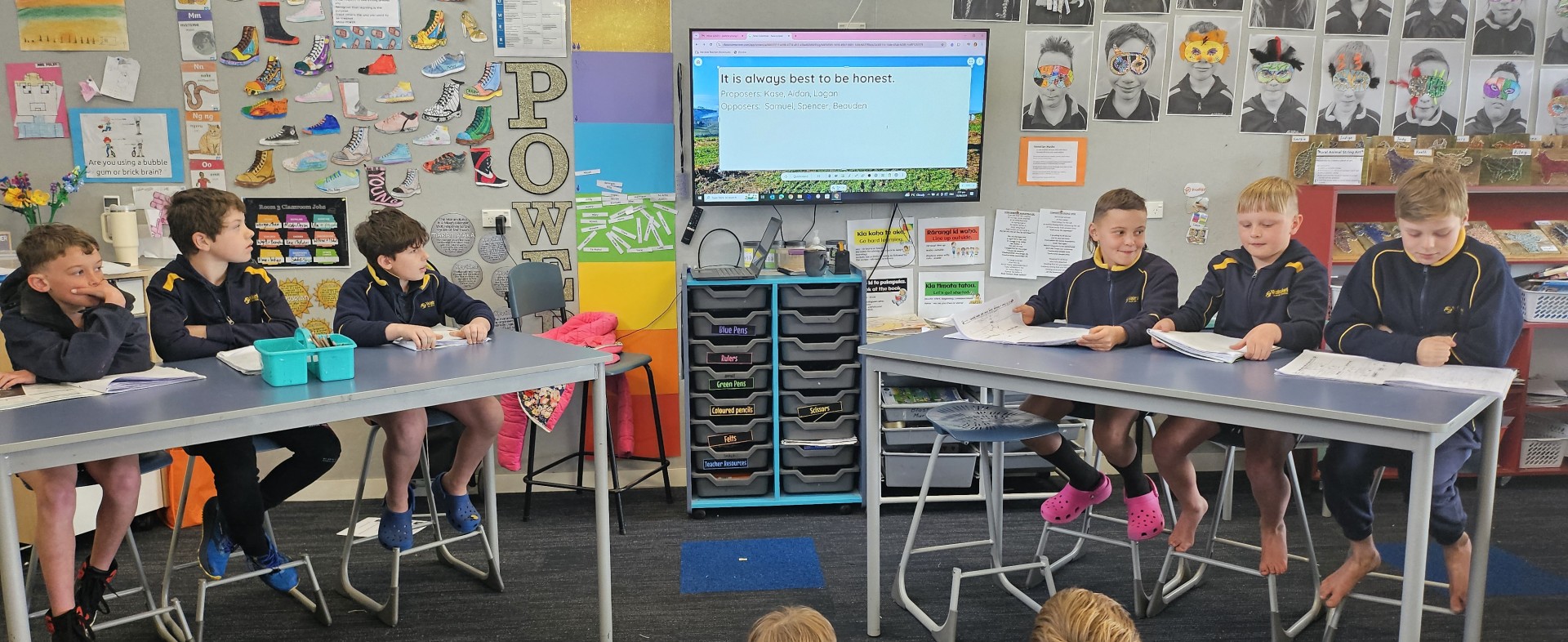
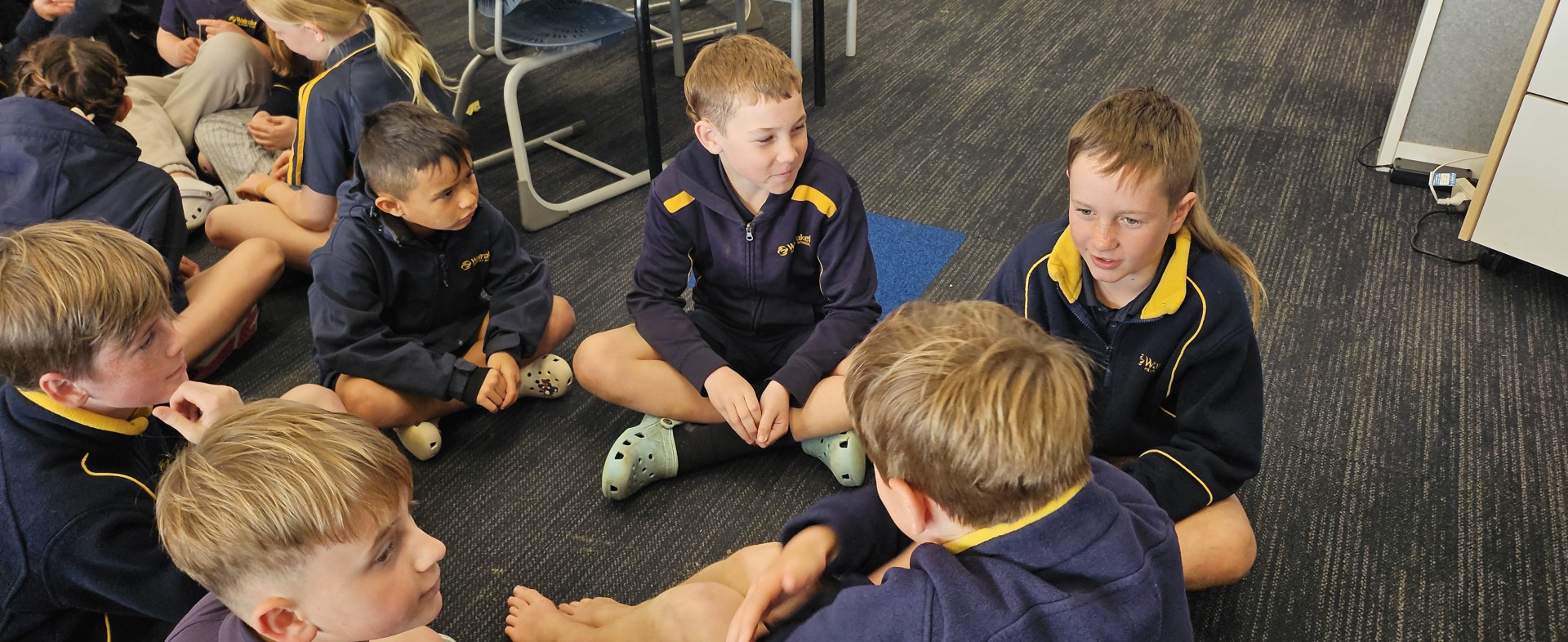

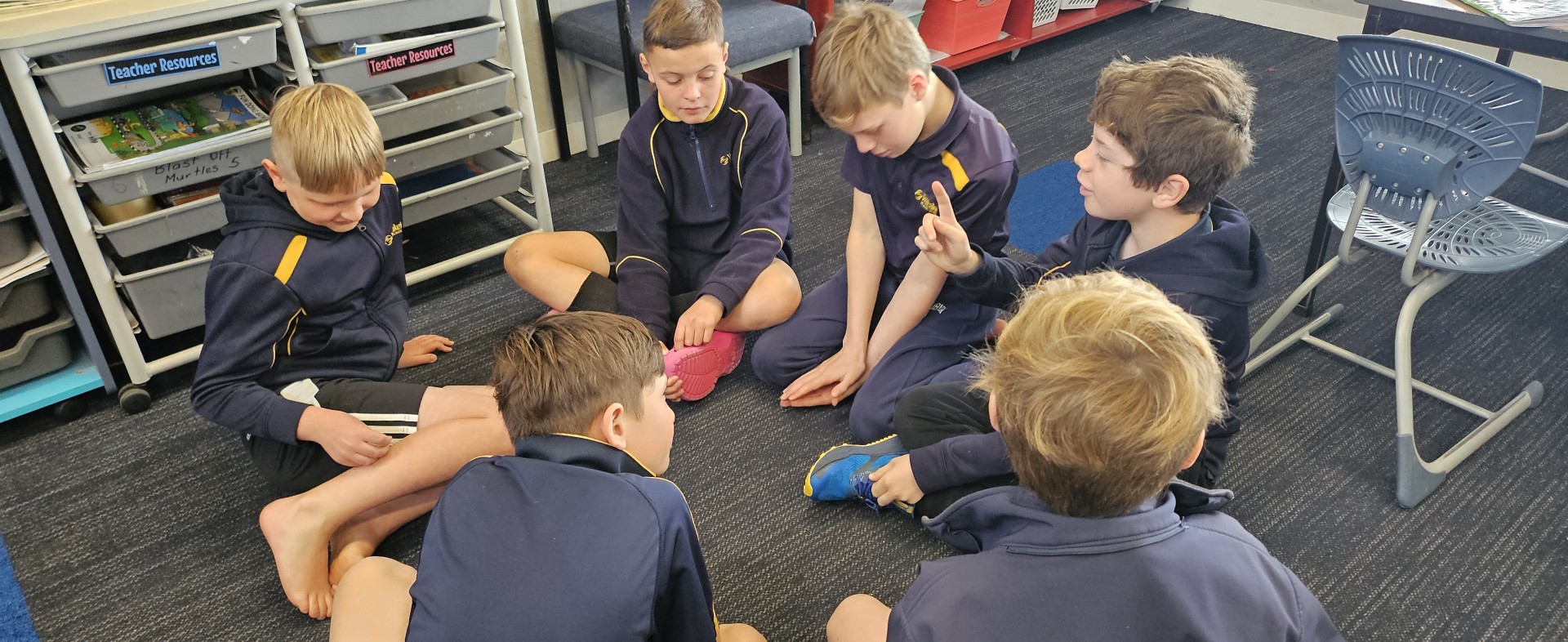
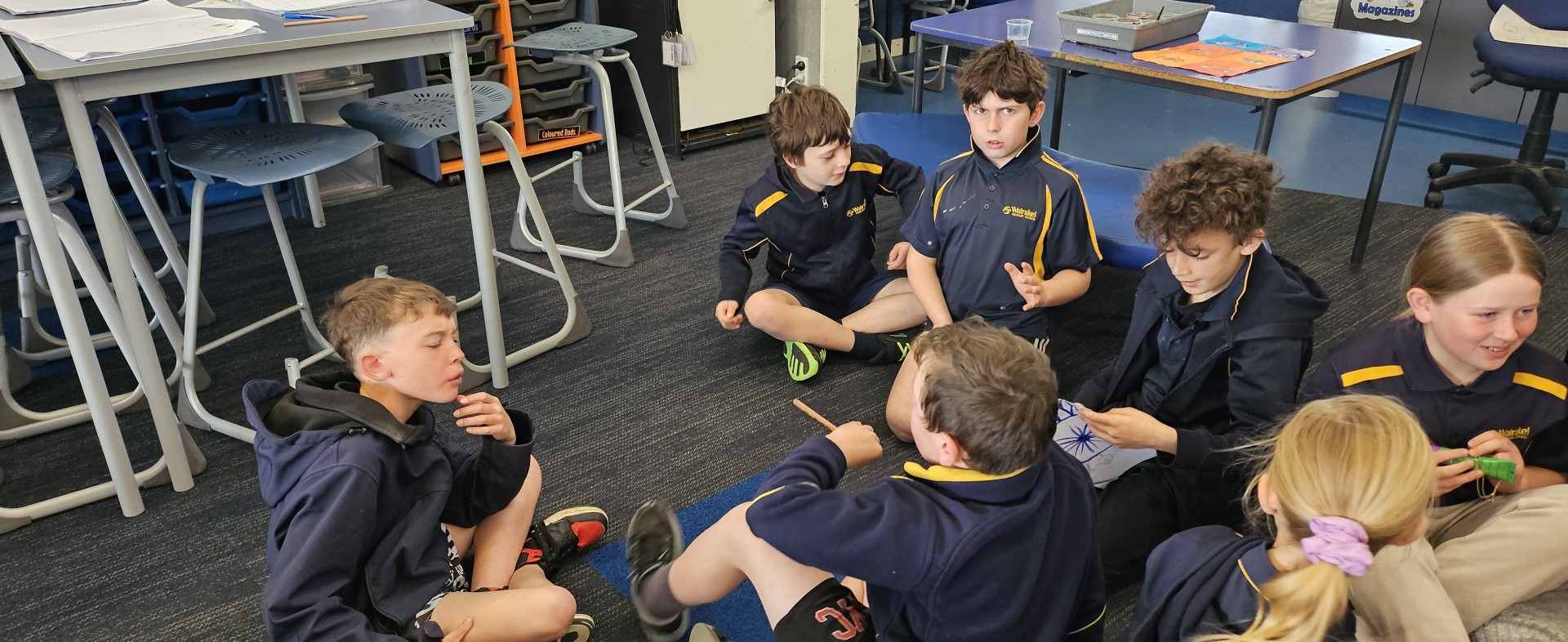


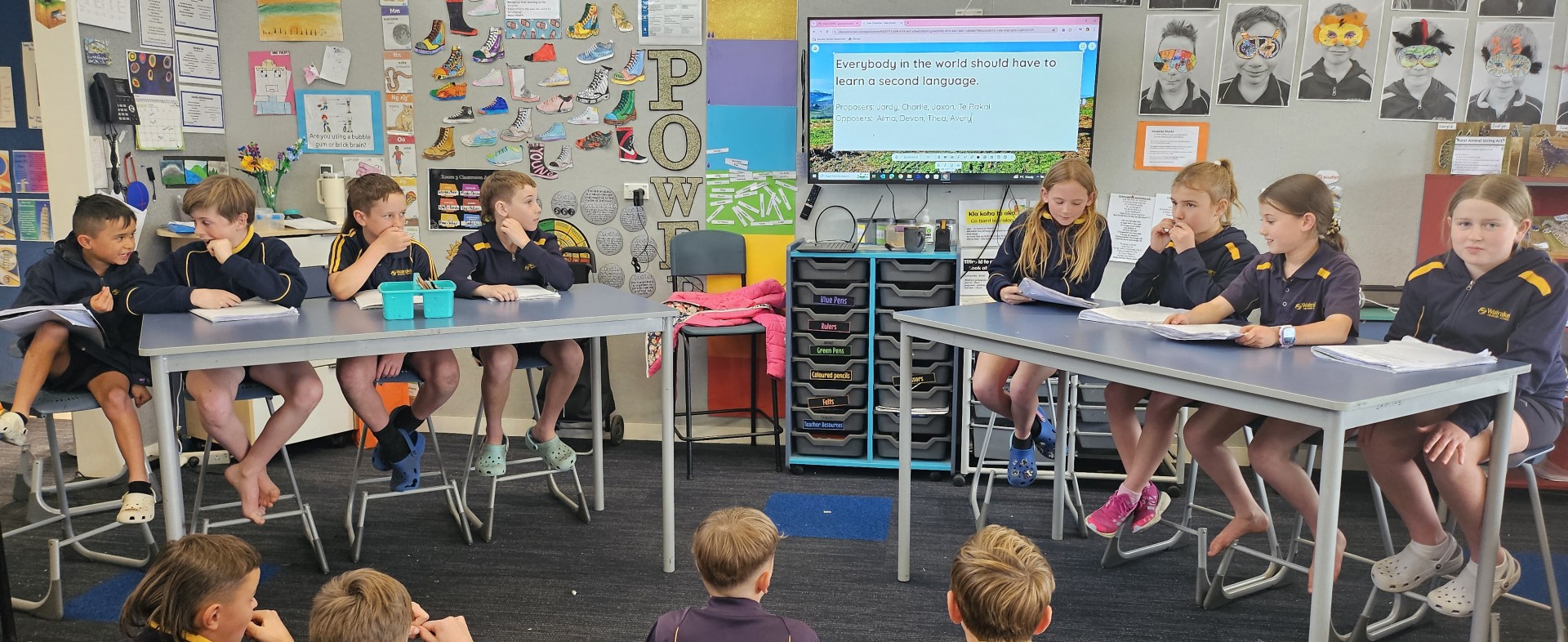

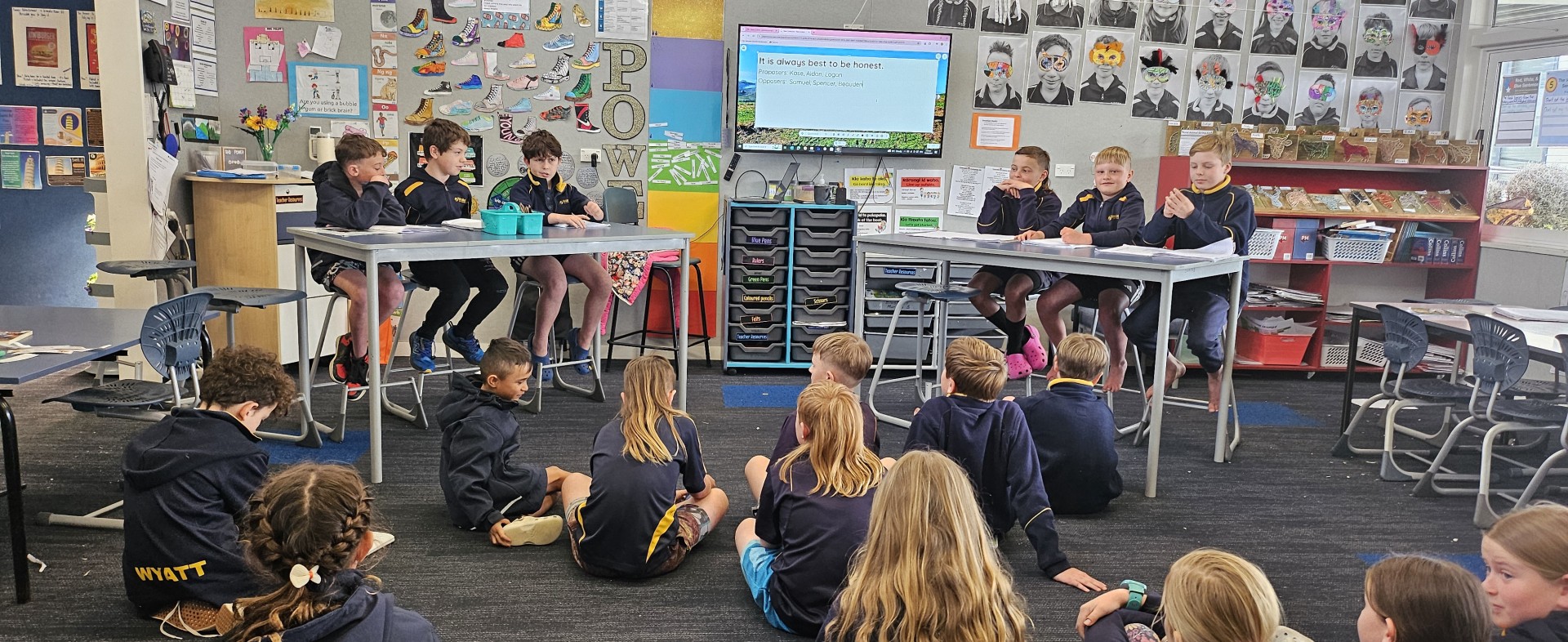

Comments
No one has commented on this post yet.